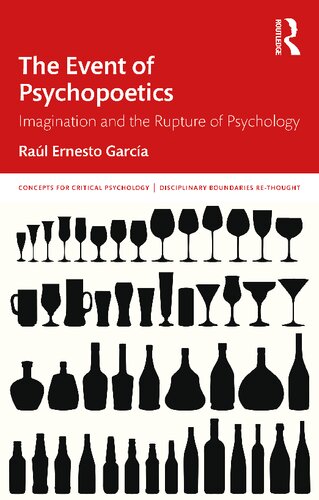

Most ebook files are in PDF format, so you can easily read them using various software such as Foxit Reader or directly on the Google Chrome browser.
Some ebook files are released by publishers in other formats such as .awz, .mobi, .epub, .fb2, etc. You may need to install specific software to read these formats on mobile/PC, such as Calibre.
Please read the tutorial at this link: https://ebookbell.com/faq
We offer FREE conversion to the popular formats you request; however, this may take some time. Therefore, right after payment, please email us, and we will try to provide the service as quickly as possible.
For some exceptional file formats or broken links (if any), please refrain from opening any disputes. Instead, email us first, and we will try to assist within a maximum of 6 hours.
EbookBell Team

5.0
28 reviewsThe Event of Psychopoetics overviews and investigates the notion of psychopoetics, a sociopsychological event that involves re-creative slips and that emerges under certain cultural conditions and power relations in the context of everyday interaction and through certain modes of dialoguing and conversing.
This transdisciplinary text takes the reader through the thought processes of Deleuze, Guattari, Agamben, Maffesoli, Foucault, Butler, Haraway, and Braidotti, among others, addressing debates that are integral to the critique of psychology and its devices of subjectivization and normalization. Garcia takes a unique approach by reflecting on how psychopoetics contrasts institutionalized dialogues, while constantly emphasizing the generative and transformative potency of social worlds effectuated in the impetuous play of poetics. The book combines the rigor of academic research with the creative display of ideas that open diverse, suggestive lines of reflection on everyday interlocution and its possibilities of reinvention, modes of social existence, and the relation between subjectivity and the designs of power.
A truly unique reading experience, this book is ideal for students, instructors, and researchers in the fields of philosophy, social psychology and sociological thought, discourse studies, literary theory, and cultural analysis.